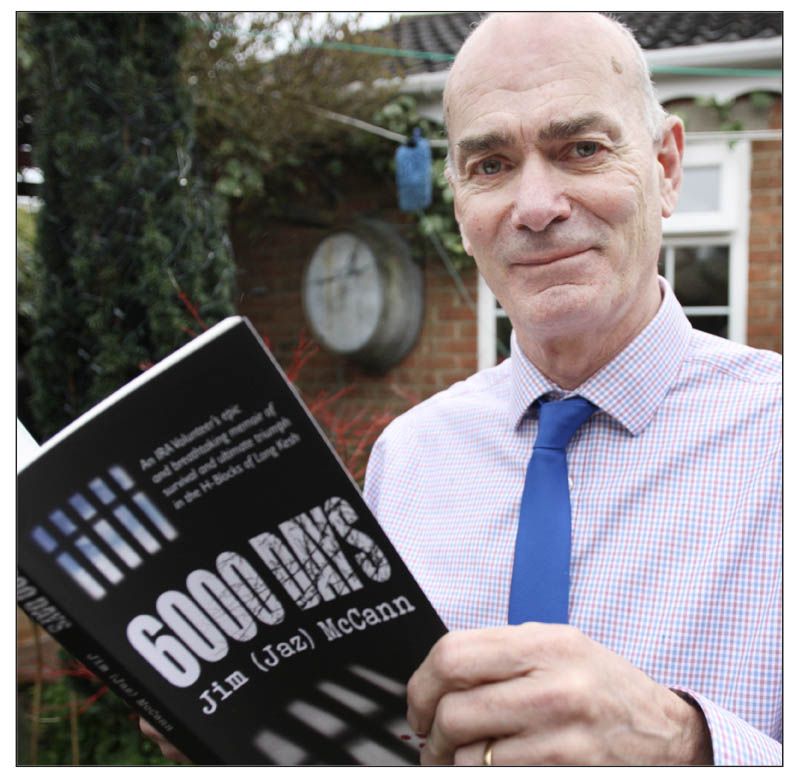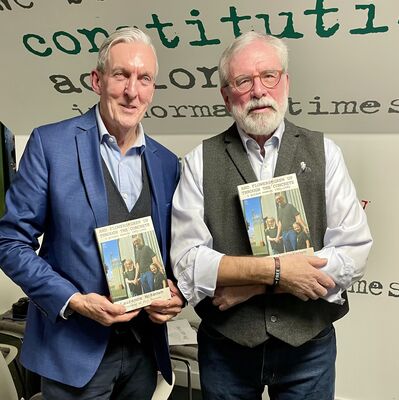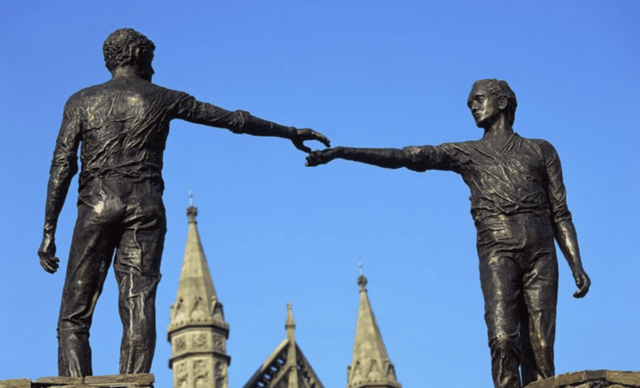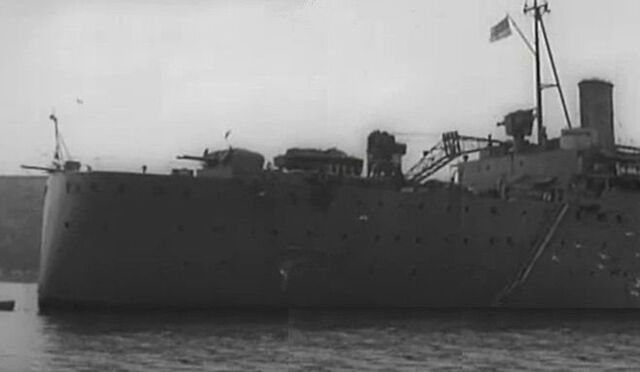JAZ McCann writes very well. The reader is quickly drawn into his world. From the opening sentences of his prologue, Jaz paints the sights and sounds, the emotions, shocks, excitement, sadness, smells and the savage brutality and amazing horrors of his 6000 Days of incarceration, mostly in the H-Blocks of Long Kesh.
He also makes us witness to the incredible courage, vision, commitment, solidarity, idealism, generosity, quirkiness, anger, native contrariness, humour, comradeship and stubbornness of the political prisoners.
6000 Days is an important and significant contribution to the history of the Irish penal experience, in line with Jeremiah O-Donovan Rossa’s classic Prison Life or Irish Rebels in English Prisons and other historical penal narratives. I have long had a view that we republicans need to write our own histories. Others should do likewise. Including from a unionist or even in this case a prison officer’s point of view. By setting all these narratives together the weave of our collective history – as lived in cities or rural Ireland by women, workers, the poor, by combatants, victims and, in this case by our political prisoners – becomes a shared history.
Embracing this and learning of the experience of others may not remove our disagreements with them but it will help us to understand and hopefully learn to live with a greater tolerance for difference and maybe an appreciation of how much we have in common. Pat Magee, another former republican combatant, has bravely tackled some of this in his memoir Where Grieving Begins.
But this important factor aside there is still in its own right, an onus on us to tell our own story. Otherwise some will try to write it for us. Jaz McCann has taken up this challenge. In his understated but graphically honest way he has shared his story with us. We should be grateful to him. I defy anyone who portrayed the Blanketmen or the Armagh Women as criminals to read it without being moved by what happened in the H-Blocks of Long Kesh in the five years leading to the summer of 1981 and the second hunger strike.
The past, of course, is never passed. Yes, it is gone. But it endures into the present. Until we agree our future it will always be difficult to agree about our past. It is contested because the future is contested. This is the 40th anniversary of the 1981 hunger strikes. Those of us who supported the prisoners, in this case the Armagh women and the blanketmen, have our view about what happened at that time and why. Jaz McCann has provided everyone with a highly personal account of what that meant to him and what was done to him and what he did during his seventeen years in prison, including five years on the blanket protest. No words of mine can convey the awfulness of life on the blanket. I considered reproducing extracts of Jaz’s words to give a sense of this to you, but that may spoil the book or parts of it. To do it justice you have to read 6000 Days. I appeal to anyone remotely interested in this period, whatever your opinion, to invest in a copy. And to read it.
Finally, as someone who was close to the hunger strikers and who remains in awe of them, I have always been conscious of the fact that ten men died. Every one of them, including Frank Stagg and Michael Gaughan who died on hunger strikes in England, and their families deserve the admiration and respect of everyone who admires courage.
Bobby Sands was the leader in every conceivable way and the first to die. For that reason sometimes Bobby may appear to overshadow the others, particularly in the media or the popular mind. Bobby certainly wouldn’t want that. He was first among equals. So I was very moved at how Jaz lovingly describes his relationship with Joe McDonnell, who died after 61 days on the stailc. I am sure other prisoners could write in the same way of the other lads who died. And those who survived. It is only right that every hungerstriker and his family are remembered as Jaz remembers Joe and his clann. Go raibh maith agat Jaz. Your stories of him made me cry.
How lucky are we who knew Bobby and Joe, Francie and Martin, Tom and Patsy, Mickey and Kevin, Raymond and Kieran. They were our golden generation of leaders and fighters, poets and patriots. Ordinary but extraordinary human beings. Jaz’s book and the tales he tells reminds me of a line from a Brian Moore song.
When all is said and done,
You know freedom is won
By those Croppies who would not lie down.
By Croppies who would not lie down.
Thank you Jaz. Thanks also to the McCann family. Especially your parents and Marian.
The first print run of 6000 Days has already sold out and a second print run will be ready in two to three weeks. It will be available from An Fhuiseog/The Lark which can be contacted via Facebook.
Just do what’s needed, Arlene
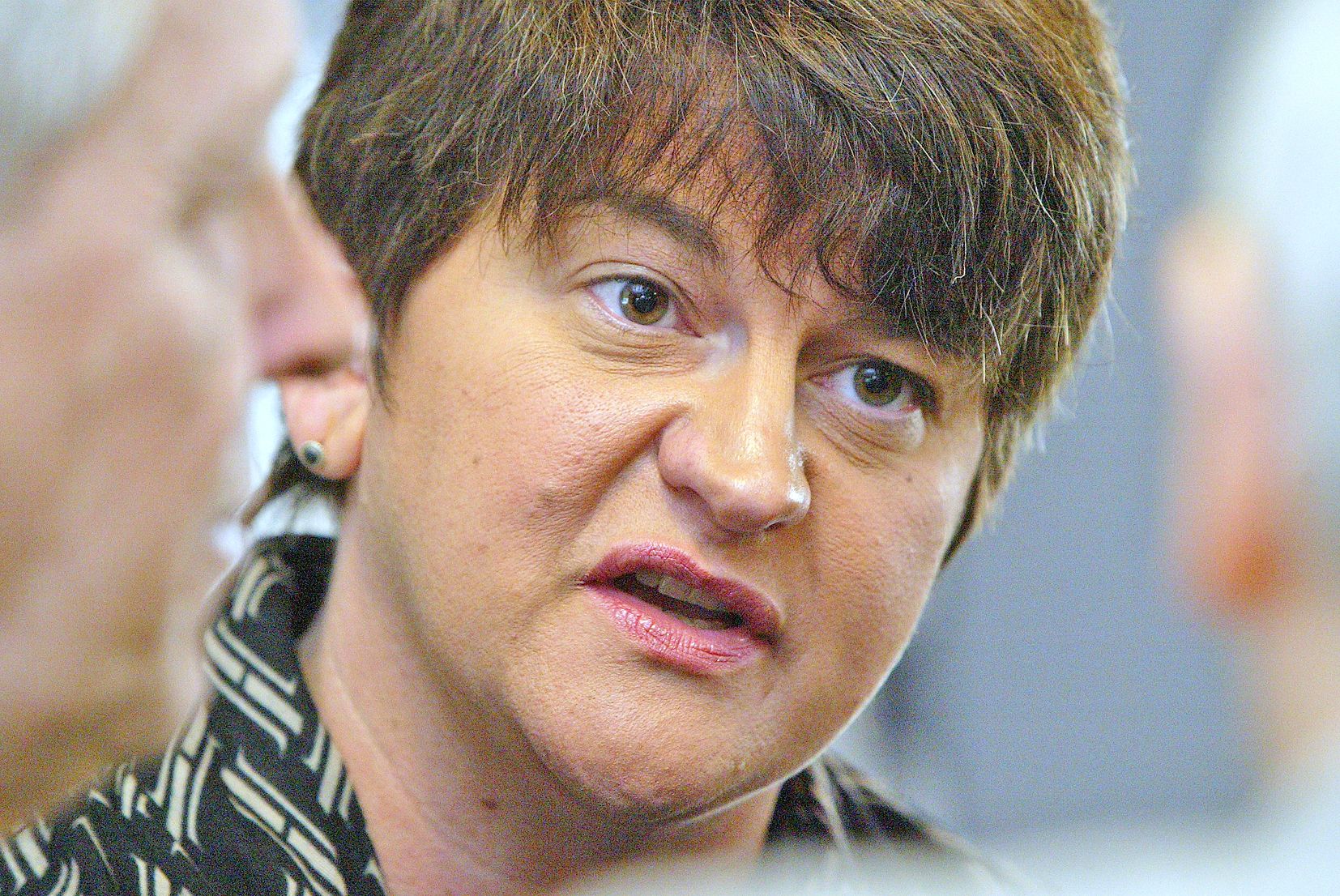
SEACHTAIN na Gaeilge is the biggest celebration of Irish language and culture in the world. It is a non-profit organsation that was set up by Conradh na Gaeilge with the aim of promoting the use of the Irish language in Ireland and overseas. The festival used to run for one week but became so popular it had to be extended and now runs annually from March 1 to March 17 – St Patrick’s Day. In 2020 there were over 30,000 events held in Ireland and across the world with an estimated three quarters of a million people participating.
Seachtain na Gaeilge normally embraces language, music, dance and sport, and increasingly events on social media. However, this year the restrictions imposed by the Covid pandemic have meant that Seachtain na Gaeilge has had to think outside the box and come up with imaginative ways in which to promote the Irish language and culture primarily online.
Local councils have played an important role this year. For example, Newry and Mourne Council hosted a series of ten short videos on its YouTube channel highlighting some of the musicians and storytellers who live in their area. These included Niall Comer, Gráinne Holland and Piaras Ó Lorcáin. Events also included an ‘Accelerated Reading Project’ involving Irish medium primary schools in the council area. Pupils were given a selection of Irish language books and asked to complete interactive exercises.
Writers too have brought a focus to the language. In the context of Seachtain na Gaeilge John Daly in an enjoyable and informative piece he wrote for the Independent – ‘Pondering our poetic place names’ – reflected on the “dismal effect” of the Anglicisation of our local place names and its impact on a “debutant postman” trying to deliver mail in Kerry. “Imagine,” he said, “the mental dexterity required for correct mail delivery on the byways and boreens of Tooreennahone, Tooreennascarty, Tooreennasliggaun and Tooreennastooka.”
Daly gave some examples of this dismal effect. The ancient name for Ballysodare is Beal Easa Dara – the Mouth of the Waterfall of the Oak Grove. Or Donnybrook, which was previously Domhnach Broc – the Church of the Badgers. His personal favourite address is Muckanaghederdauhaulia in the Connemara Gaeltacht. In the Irish its Muiceanach Idir Dhá Sháile – ‘a piggery between two expanses of briny water’.
This blog is very enthusiastic about the language. I enjoy being able to speak Irish and to read it and have even written some modest poems in Irish. I am not as fluent as I would like. Like every language or sport or skill the key to mastering it is perseverance – sticking at it. And using it. I use Irish on every occasion I can. And as those I rely on to keep me right with my pronunciation and understanding keep telling me, it can be difficult. But the hard work is worth it when it all comes right.
In recent years the North has seen a renaissance in the use of the Irish language. This is evident in the growth in Irish medium education. According to the Department of Education there are 29 Irish medium schools and a further 10 Irish medium units attached to English medium host schools. Of the 29 schools, 28 are primary and one is post-primary, Coláiste Feirste. Of the 10 Irish medium units attached to English medium host schools, seven are primary and three are post-primary. In addition to these, Gaelscoil na Daróige in Derry City is an independent school teaching through the medium of Irish.
All of this points up the need for Acht na Gaeilge in the North. The provisions for this were part of the New Decade, New Approach agreement reached last year. If equality and a shared society are to become real there must be progress on the legislation required for the protection for the Irish language. The First Minister has clearly committed to bring forward the ‘package of identity and cultural pieces agreed as part of the New Decade New Approach Agreement by the end of this mandate’.
Notwithstanding the challenges presented by the Covid pandemic and the outworkings of Brexit, there needs to be progress on this before the current mandate for the Assembly ends in a year’s time. Over to you Arlene. Na habair é. Dean é. Don’t talk about. Do it.
On St Patrick’s Day I’ll be raising a glass to my Uncle Paddy
I LIKE Saint Patricks Day. I always like to raise a glass on this special day to all the Paddies and Patricias, the Pádraics and Pádráigíns in my life. Chief among these is my older brother Paddy and our Uncle Paddy.
Uncle Paddy died on Saint Patrick’s Day in 1984. He had called to see me in the Royal Hospital where I was recovering from gunshot wounds. He left me a few pounds and went off with his shamrock proudly displayed on his lapel only to be back a few hours later in the Emergency Dept, injured after a fall.
ACT OF BRAVERY: The funeral of Joe McDonnell making its way through Lenadoon on 10 July 1981. The cortege was attacked by British Army and RUC later on the Andersonstown Road.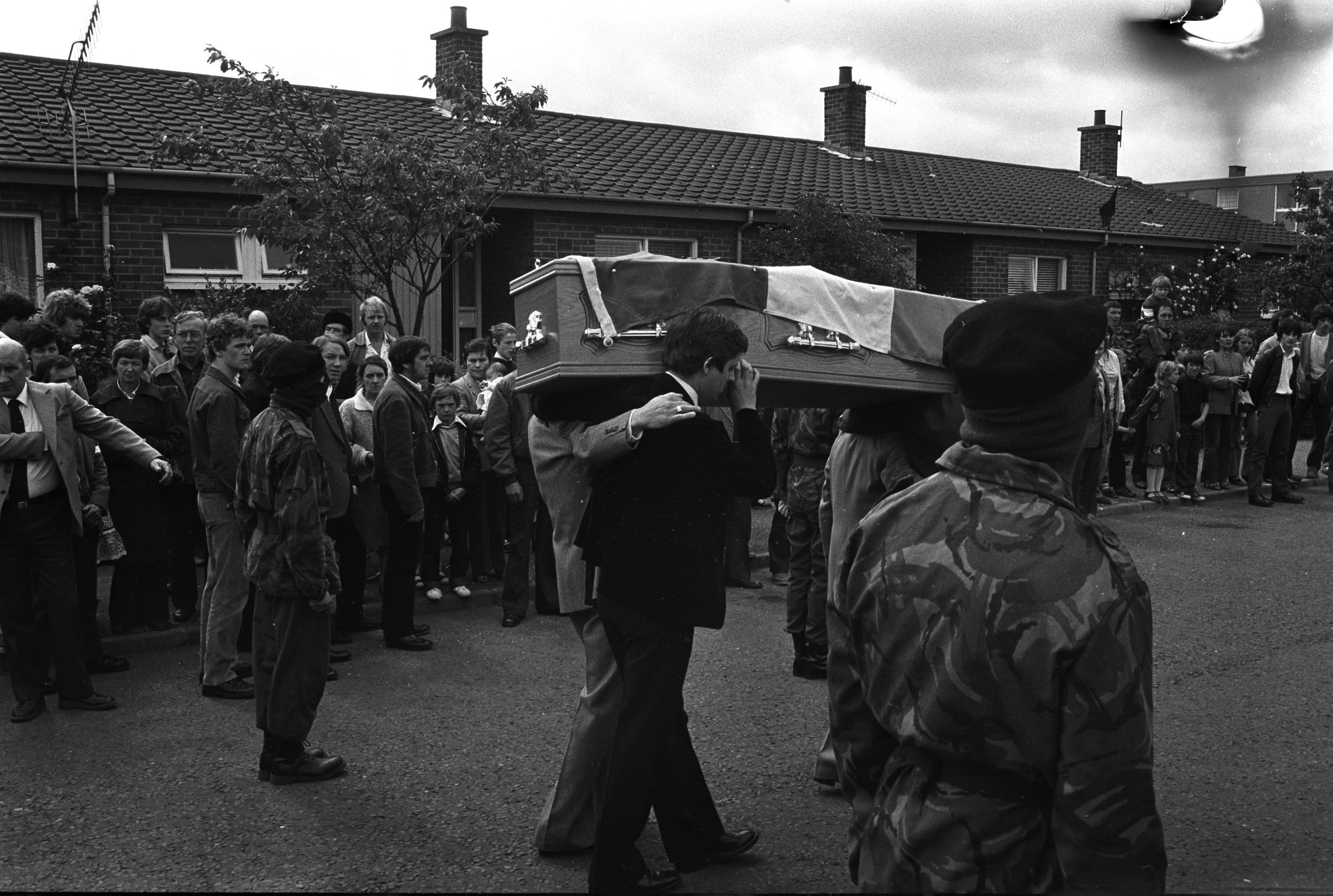
Uncle Paddy was a great man. When my brother Paddy was shot and seriously injured by the British Army during the attack on Joe McDonnell’s funeral, our Uncle Paddy lay down on his own in front of a British Army vehicle in St Agnes’ Drive to block its passage.
So as usual this Saint Patrick’s Day I will raise a wee glass in his honour and memory. I am sure my brother Paddy will do likewise, even though Covid restrictions prevent us doing it together. But this too shall pass.
So to absent friends and the Irish everywhere: Lá Fhéile Pádraig faoi mhaise daoibh. Sláinte. Anois ar theacht an tsamraidh.

